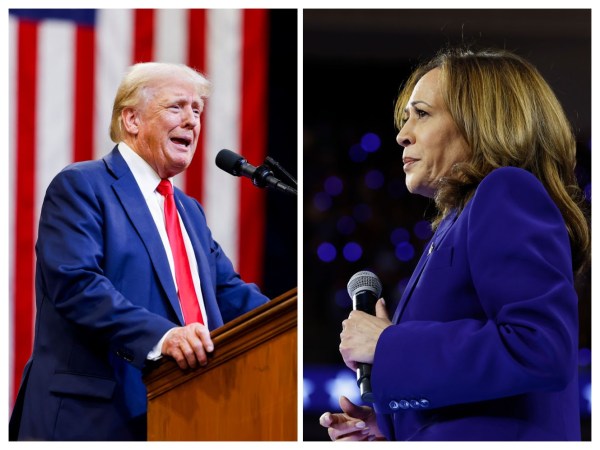The Democratic Party has a couple of big things going for it in this election season: For one thing, it is not the party whose leaders tried to stage a coup d’état the last time they lost a presidential election, and, for another, it is not the party currently led by a delusional cretin whose latest big idea was attacking the Medal of Honor and those who have won it. Happily for the Democrats, they will not have to run on ideas in 2024—if they did, they’d be hosed.
But.
If you’d like a concentrated dose of one particularly irritating aspect of what is wrong with the Democratic Party, what has long been wrong with that party, and what most likely will continue to be wrong with that party, take the time to endure this New York Times interview with singer Jason Isbell, who is this year’s avatar of the doomed Democratic hope that blue-collar Southern white men who like country music are—at last!—going to back come around to the Democrats’ point of view. I don’t know if Isbell covers “Dust in the Wind” in his set, but he sure does seem to think he knows what’s the matter with Kansas.
Everybody sing along—you know the words:
I remember when Bush was running, Jr., I remember seeing back home in Alabama, people would have trailers with cars on blocks, and clearly, people that weren’t doing very well financially, and they had signs in their yard for Bush. And I remember thinking, a lot of these folks don’t even realize that they’re acting against their own best interests. And if we could just convince Americans of what their own best interests are, we wouldn’t have to ask them to be anything other than selfish. It’s like, please vote selfishly, because you’re going to wind up voting for a Democrat, unless you’re part of the top 1 percent of earners.
Nina Métayer herself couldn’t figure out a way to bake more wrongness or smugness into that cake.
That blue-collar rural people and conservative-leaning lower-income exurban whites don’t understand their own interests has been an article of Democratic faith since at least the time of Lyndon Johnson, who described the relevant politics of class and race thus: “If you can convince the lowest white man he's better than the best colored man, he won't notice you're picking his pocket. Hell, give him somebody to look down on, and he'll empty his pockets for you.” Thomas Frank’s much-discussed 2004 book, What's the Matter with Kansas? How Conservatives Won the Heart of America, makes the same argument: that the right uses the so-called cultural issues to keep the Jesus freaks out there in the boonies in such a state of aggravated homosexual panic that they forget to vote for confiscatory tax rates on investment income. Citing that book, Nicholas Kristof explained the results of the 2004 presidential election in the same terms, arguing that Democrats “should be feeling wretched about the millions of farmers, factory workers, and waitresses who ended up voting—utterly against their own interests—for Republican candidates.”
That line of analysis is built atop two assumptions: First, that poor white people do not understand their economic interests; second, that their interests are best served by what the Democrats traditionally have offered, which is a richer array of welfare benefits. As an ambassador-at-large from the redneck community, let me assure you that neither of those things is necessarily true, though each may be true in any given individual case. It apparently is impossible for such figures as Kristof and Isbell to understand that what these people may aspire to is financial autonomy and independence rather than a better-feathered nest of government dependency. Their interests are what they are—not what you think they should be.
Politics scholars have known for a very long time that people’s voting habits are less linked to their present economic conditions than to their aspirations and expectations and sense of self. Some people may vote based on the situation they are in, but many others are more informed by the kinds of lives—and the kind of country—they hope to have. My own views about welfare programs and income redistribution have been roughly the same across a range of economic circumstances ranging from food-stamp eligibility to a happier situation later in life. That isn’t unusual.
And it isn’t just us rednecks, either. One wrongheaded bit of Republican analysis has long held that African Americans are more likely to vote Democratic because they are relatively low-income and thus stand to gain more from progressive welfare policies. But research shows that affluent African Americans, who have less to gain from such programs and pay more in tax to support them, tend to be more supportive of social spending than low-income African Americans. (African American support for redistributive policies has declined over time, following the general trend.)
There are lots of possible explanations for that: higher risk aversion among African Americans, the “black utility heuristic,” etc. People are complicated. Another example: Race is a big dividing line in American politics, but black voters with children are politically different rom black voters without children. High-income whites in high-income states have traditionally voted more Democratic than do high-income whites in low-income states. Rich white guys in Greenwich, Connecticut, are different from rich white guys in Baton Rouge, Louisiana.
The supplemental argument from the likes of Isbell et al.—that issues related to religion, culture, and morality are a sideshow distraction from the “real” issues of taxing and spending—is pure question-begging. The United States isn’t Haiti—even the poorest bits are extraordinarily wealthy by world standards: Per capita GDP in Mississippi, our poorest state, is higher than in France or in the European Union overall. People who have achieved a certain level of material comfort often turn their attention to other pursuits—which is entirely rational from a marginal-utility perspective. Your average American redneck is not Homo economicus, and he need not be—he is permitted to care about other things, even if that annoys Nicholas Kristof—and even if the things he cares about are, from my point of view, not worth caring about very much.
(As an aside from a guy who admires both F.A. Hayek and Bad Religion—who gives a fig what musicians think about politics? Or actors, or painters, or danseurs? I’ll bet the lady who cuts my grass has views on politics that are just as interesting as Jason Isbell’s, but the New York Times isn’t interviewing her. I know, I’ve been doing this for a long time: Famous people are always news.)
It is worth considering that this line of analysis is, in addition to being dumb, increasingly outmoded. In the Trump era, the Republican Party has been largely converted into a European-style right-wing welfare-chauvinism party, i.e., a party that combines traditional welfare-statism with nationalism and Kulturkampf politics, typically xenophobic in character. The Republicans may lean into the kinds of welfare programs that most appeal to their incumbent constituencies—Social Security and Medicare—but, at least for the moment, they seem to have entirely abandoned any pretense of harboring a small-government sensibility when it comes to the question of reforming the major entitlements—and whatever libertarian scruples Republicans may have had about crony capitalism and corporate subsidies are bleeding out on the floor. So those simple rustics in Kansas and the rednecks “back home in Alabama” can have their culture war and their welfare benefits, too, if that’s what they want.
Until the money runs out, anyway, at which point all of us get to learn a hard lesson about what our real interests are.







Please note that we at The Dispatch hold ourselves, our work, and our commenters to a higher standard than other places on the internet. We welcome comments that foster genuine debate or discussion—including comments critical of us or our work—but responses that include ad hominem attacks on fellow Dispatch members or are intended to stoke fear and anger may be moderated.
With your membership, you only have the ability to comment on The Morning Dispatch articles. Consider upgrading to join the conversation everywhere.